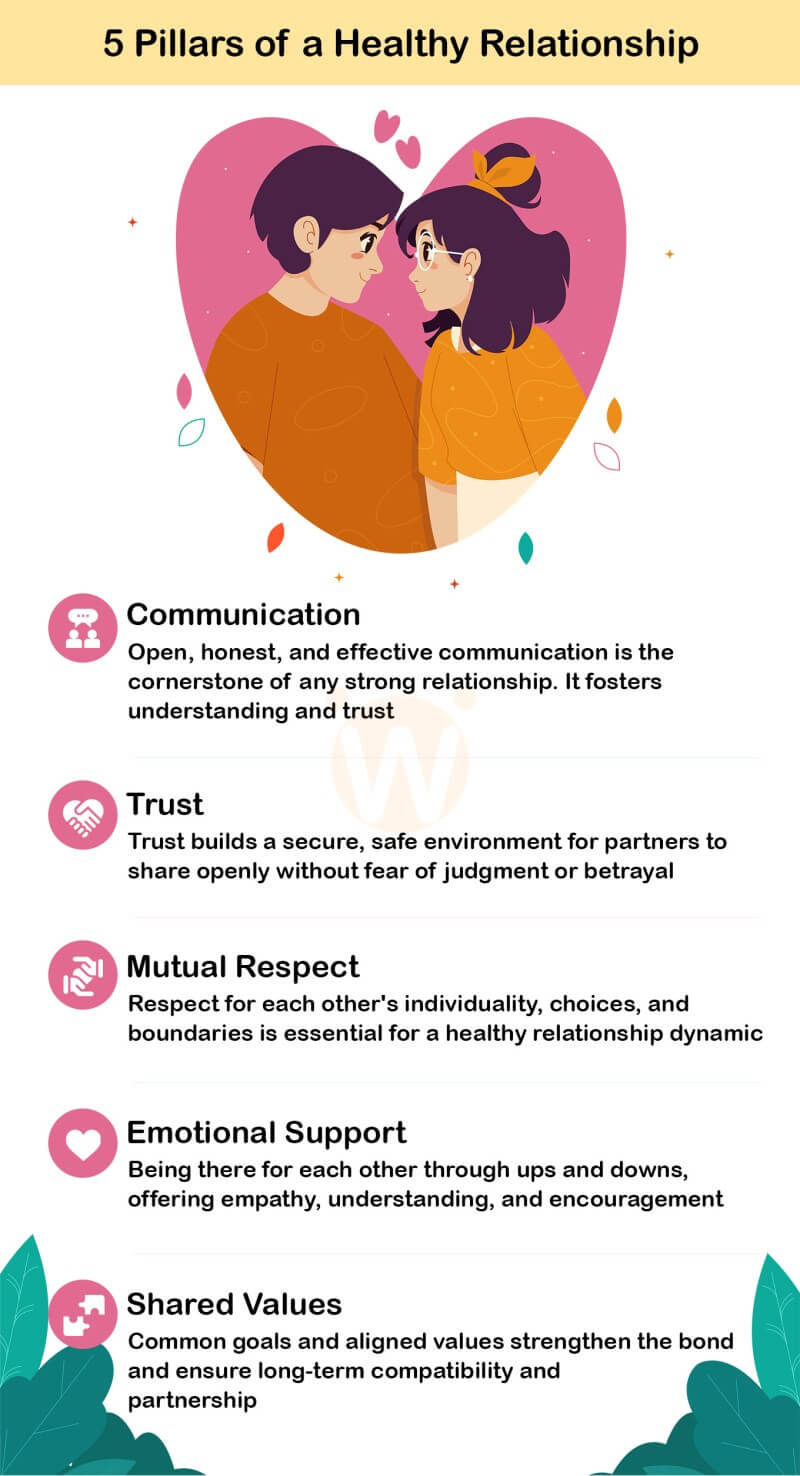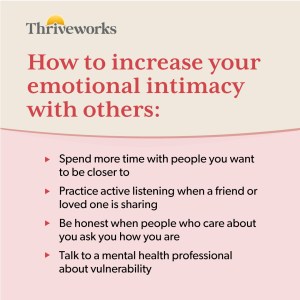
Understanding Emotional Intimacy
Definition of Emotional Intimacy
Emotional intimacy refers to the close connection that develops when partners share their thoughts, feelings, and experiences in a safe and trusting environment. It’s about being deeply understood and accepted by another person. This bond allows individuals to reveal their innermost selves without fear of judgment, creating a foundation for a strong, lasting relationship.
For instance, couples who have built emotional intimacy often find that they can communicate about sensitive issues more openly. They feel secure enough to share their insecurities, dreams, and fears, leading to a more profound connection.
Benefits of Emotional Intimacy in Love
The advantages of fostering emotional intimacy in relationships are significant:
- Enhanced Trust: Sharing vulnerable feelings naturally strengthens the trust between partners.
- Improved Conflict Resolution: Understanding each other’s emotional triggers helps in addressing conflicts without hostility.
- Greater Satisfaction: Couples report higher satisfaction in their relationships when they feel emotionally connected.
- Increased Emotional Support: In times of stress or crisis, a solid emotional bond enables partners to support each other effectively.
Imagine a couple planning their future together. When they share their hopes and fears, they not only grow closer but also create a shared vision that fosters unity. Emotional intimacy transforms a relationship into a partnership where both individuals feel valued and understood, paving the way for deeper love.

Building Trust and Vulnerability
Importance of Trust in Emotional Intimacy
Trust is the cornerstone of emotional intimacy, and without it, relationships can feel shallow or insecure. When partners trust each other, they can share their innermost thoughts and emotions, enhancing the bond they share. Trust fosters a safe space for open communication and vulnerability, allowing both individuals to explore their feelings without apprehension.
Consider a scenario where one partner reveals a past trauma. If the other partner reacts with empathy and understanding, it can significantly strengthen their trust. This mutual confidence can turn an ordinary relationship into one that is deeply fulfilling.
Being Vulnerable in a Relationship
Vulnerability is often viewed as a weakness, but in the context of relationships, it is a profound strength. When partners allow themselves to be vulnerable, they create pathways for deeper connections. Here are some compelling aspects of embracing vulnerability:
- Authenticity: Being vulnerable encourages individuals to show their true selves, fostering genuine intimacy.
- Strengthening Bonds: Sharing fears, insecurities, and dreams can deepen emotional connections.
- Encouraging Reciprocity: When one partner opens up, it often encourages the other to do the same, creating a cycle of vulnerability and trust.
For example, sharing a fear of failure can lead to discussions about personal goals, ultimately enriching the relationship. Vulnerability allows couples to work through challenges together, turning obstacles into opportunities for growth. By embracing these qualities, partners can cultivate a loving and resilient relationship.
:max_bytes(150000):strip_icc()/VWH-ZoeHansen-HowtoBuildIntimacy-Standard-1df2632b6c19411b9d82ea7820ad5d13.jpg)
Effective Communication
Active Listening Techniques
Effective communication is crucial for nurturing emotional intimacy, and it begins with active listening. This technique requires full engagement and attentiveness when your partner is speaking, showing them that their thoughts and feelings are valued. Here are a few active listening techniques to implement:
- Maintain Eye Contact: This conveys interest and connection, making the speaker feel heard.
- Use Nonverbal Cues: Nodding, leaning slightly forward, or using appropriate facial expressions can reinforce your attentiveness.
- Reflect and Clarify: Paraphrasing what your partner said allows them to feel understood. For example, you might say, “What I hear you saying is that you feel anxious about…”
By practicing these techniques, partners can create a safe space where thoughts are freely shared, ultimately fostering deeper emotional connections.
Expressing Emotions Clearly and Honestly
While listening is essential, being able to express emotions clearly and honestly is equally important. Vulnerability in communication can pave the way for deeper connections. Here’s how to do it effectively:
- Use “I” Statements: For instance, saying “I feel hurt when…” instead of “You always make me feel…” reduces defensiveness.
- Be Specific: Instead of vague comments, articulate the emotions tied to specific actions or events. This clarity can help your partner understand your perspective better.
- Practice Timeliness: Address emotions as they arise. Waiting too long may lead to misunderstandings or resentment.
By mastering these communication strategies, partners can enhance their emotional intimacy. For example, rather than shouting in frustration, a couple could discuss their feelings calmly, leading to resolutions rather than escalation. This thoughtful approach transforms communication into a powerful tool for deepening love and understanding.

Enhancing Connection and Understanding
Practicing Empathy and Compassion
To truly enhance connection and understanding in a relationship, practicing empathy and compassion is key. Empathy goes beyond simply feeling for someone; it involves stepping into their shoes and understanding their emotions from their perspective. When partners empathize with one another, it strengthens the emotional bond significantly.
Here are some simple ways to foster empathy and compassion in your relationship:
- Validate Feelings: Acknowledge how your partner feels, even if you don’t fully understand it. Saying, “I can see why you’d feel that way,” shows that you’re listening.
- Ask Open-Ended Questions: Encourage deeper conversations by asking, “What was that like for you?” instead of yes/no questions.
- Offer Support: Sometimes, even just being there is enough. A comforting touch or a listening ear can make all the difference.
For example, if your partner is stressed about work, rather than offering solutions, simply ask them to share more about it. This simple act can foster compassion and understanding.
Sharing Values and Goals
Another way to enhance connection is by sharing values and goals. When partners align on important life principles and aspirations, it fosters a sense of partnership and joint purpose. Here’s how to dive into this aspect:
- Discuss Core Values: Take time to discuss what matters most to each of you, whether it’s family, career, or personal growth.
- Set Shared Goals: Work together to establish objectives, whether they’re short-term (like planning a vacation) or long-term (such as investing in a home).
- Celebrate Achievements Together: Recognize and celebrate milestones, big or small, to reinforce your bond and commitment.
A great example could be shared experiences, like volunteering together, that not only align with your values but also bring you closer. By practicing empathy and sharing core values, couples can deepen their emotional connections, making their relationship not just about love, but also about mutual understanding and support.

Managing Conflicts and Challenges
Conflict Resolution Strategies
Every relationship faces conflicts and challenges. What matters most is how couples manage these disputes. A harmonious resolution can strengthen emotional intimacy if approached with care. Here are some effective conflict resolution strategies:
- Stay Calm: Take a break if emotions run high. Step away and return when both partners can discuss the issue rationally.
- Focus on the Issue: Address the problem at hand rather than bringing up past grievances. This prevents the discussion from becoming overwhelming.
- Compromise: Relationships require give and take. Each partner should be willing to find a middle ground to resolve differences.
For example, if a couple has a disagreement about household chores, instead of assigning blame, they could openly discuss their feelings and work together to create a chore schedule that suits both parties. This collaborative approach fosters respect and understanding.
Dealing with Emotional Baggage and Past Traumas
In addition to resolving conflicts, it’s essential to address emotional baggage and past traumas that may affect the relationship. Here are some ways to navigate this sensitive terrain:
- Open Communication: Encourage honest discussions about past experiences that may be influencing current behaviors or emotions. For instance, if one partner has trust issues from a previous relationship, addressing this openly can help build security in the current partnership.
- Seek Professional Help: Sometimes, a therapist’s guidance can be invaluable in unpacking deep-seated emotional baggage. Couples therapy can provide a safe space to explore complex feelings together.
- Practice Patience: Healing from past traumas takes time. Both partners should be supportive and patient with each other throughout this journey.
By actively managing conflicts and addressing emotional baggage, couples can protect and even deepen their emotional intimacy. Ultimately, these challenges can lead to greater understanding and a stronger connection if navigated together.
